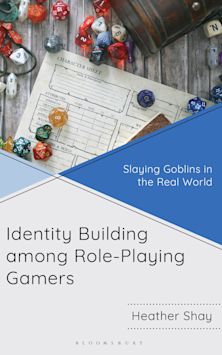- Home
- ACADEMIC
- Sociology
- Sociology - Other
- Sociological Visions
Sociological Visions
With Essays from Leading Thinkers of our Time
Kai Erickson (Author) , Daniel Bell (Contributor) , Paul DiMaggio (Contributor) , Denis Donoghue (Contributor) , Jean Bethke Elshtain (Contributor) , Kai Erikson (Contributor) , Gerald Holton (Contributor) , Michael Katz (Contributor) , Ira Katznelson (Contributor) , Robert K. Merton (Contributor) , Daniel Patrick Moynihan (Contributor) , Neil J. Smelser (Contributor) , Charles Tilly (Contributor) , Margaret Weir (Contributor) , William Julius Wilson (Contributor) , Alan Wolfe (Contributor) , Viviana A. Zelizer (Contributor)
Sociological Visions
With Essays from Leading Thinkers of our Time
Kai Erickson (Author) , Daniel Bell (Contributor) , Paul DiMaggio (Contributor) , Denis Donoghue (Contributor) , Jean Bethke Elshtain (Contributor) , Kai Erikson (Contributor) , Gerald Holton (Contributor) , Michael Katz (Contributor) , Ira Katznelson (Contributor) , Robert K. Merton (Contributor) , Daniel Patrick Moynihan (Contributor) , Neil J. Smelser (Contributor) , Charles Tilly (Contributor) , Margaret Weir (Contributor) , William Julius Wilson (Contributor) , Alan Wolfe (Contributor) , Viviana A. Zelizer (Contributor)
This product is usually dispatched within 3 days
- Delivery and returns info
-
Free US delivery on orders $35 or over
You must sign in to add this item to your wishlist. Please sign in or create an account
Description
While other academic disciplines claim a focus around specific subject matter, sociologists think of their field as an approach to understanding the often invisible forces and social contexts that shape the way people conduct their lives. How these forces and contexts are structured is central to sociology. But how do sociologists analyze these invisible structures? This book contributes to our understanding by bringing together a remarkable set of master essays about modern sociology written by some of the leading figures of the field. Each author describes a vision of sociological inquiry or offers an example of research that illustrates approaches and problems encountered in doing sociological work. The collection is rounded out with a prologue by Kai Erikson, an epilogue by Paul DiMaggio, and an extraordinary autobiographical essay by Robert K. Merton. The book is introduced by its editor as a set of reflections, a gathering of visions. But the range of topics and the variety of authors represented make it a valuable introduction to sociology as a discipline and as a way of thinking.
Table of Contents
Chapter 2 Sociology as a Perspective
Part 3 Part II. Sociology as Art and Science
Chapter 4 Sociology as Science, Humanism, and Art
Chapter 5 The Two Faces of Social Science
Chapter 6 Disciplined Artfulness and the Human Sciences
Chapter 7 History and Sociological Imagining
Chapter 8 The Many Enchantments of Money
Chapter 9 Sociology and History: Terms of Endearment?
Chapter 10 Social Science: An Imperfect Art
Part 11 Part III. Sociology and Public Policy
Chapter 12 Toward a Broader Vision of Inner-City Poverty
Chapter 13 Race, Localism, and Urban Poverty
Chapter 14 Inner-City as Place
Chapter 15 Social Science and Social Policy: A Case Study of Overreaching
Chapter 16 Epilogue: Sociology as a Discipline
Chapter 17 Introduction
Chapter 18 De-gendering "Man of Science": The Genesis and Epicene Character of the Word Scientist
Chapter 19 On the Moral Authority of Science
Chapter 20 Strange Relation
Chapter 21 A Life of Learning
Product details
| Published | Aug 29 1997 |
|---|---|
| Format | Paperback |
| Edition | 1st |
| Extent | 288 |
| ISBN | 9780847685097 |
| Imprint | Rowman & Littlefield Publishers |
| Dimensions | 9 x 6 inches |
| Publisher | Bloomsbury Publishing |
About the contributors
Reviews
-
The whole book is in fact a treat for old stagers in the sociological establishment, full of serious reflections about the difficulties and intriguing intellectual charm of living nd working with a discipline which 'has never been able to make up its mind quite what it is' (Smelser, Sociology as Science, Humanism and Art, p.20).
Martin Albrow, Roehampton Institute and London School of Economics and Political Science, British Journal of Sociology



































